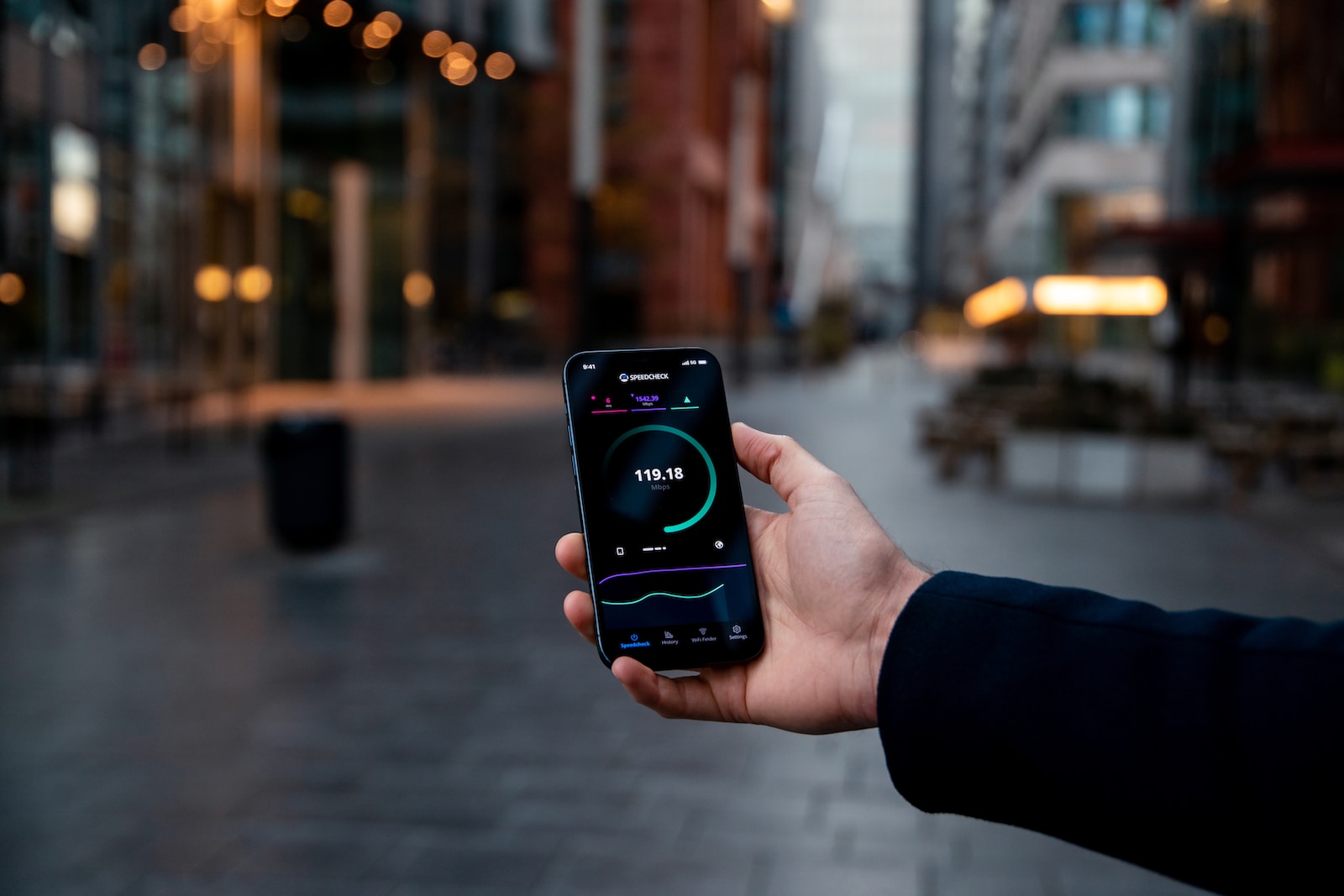IoT for Small Business: In a world where technology advances at lightning speed, the Internet of Things (IoT) has emerged as a pivotal game-changer. Beyond smart homes and wearables, IoT’s scope in transforming businesses, especially smaller enterprises, is vast. As small businesses seek avenues to grow and remain competitive, IoT offers a toolkit for efficiency, innovation, and enhanced customer engagement.
Demystifying IoT for Small Business
IoT, at its core, means devices connecting and communicating via the internet, facilitating data sharing and analytics. From simple sensors to advanced machinery, if it’s connected, it’s part of the IoT ecosystem. The beauty of this technology is its adaptability, offering solutions tailored to diverse business needs.
For small businesses, the adoption of IoT might seem daunting due to perceived complexities or costs. However, in an age where adaptability defines success, integrating IoT isn’t a luxury but a necessity. By demystifying IoT, understanding its functionalities and benefits, small businesses can pivot towards a future-ready stance.
The evolution of technology has democratized its access. No longer are cutting-edge solutions reserved for large corporations. With scalable IoT solutions, small businesses can not only level the playing field but often lead in innovation and efficiency.
Why Small Businesses Should Care About IoT
Operational efficiency is the cornerstone of any successful business. For small businesses, the margins are even finer, making optimization crucial. IoT offers automation and real-time insights, driving efficiency and reducing costs, a proposition hard to ignore for growth-oriented enterprises.
Beyond operations, we live in an age of personalization. Customers seek tailored experiences, and businesses that deliver reap the rewards. IoT facilitates deep insights into customer behavior, allowing businesses to offer bespoke solutions, thus fostering loyalty and driving revenue.
Lastly, in a competitive landscape, differentiation is key. Adopting IoT isn’t just about internal benefits; it’s about showcasing innovation to customers. In leveraging IoT, small businesses signal their forward-thinking approach, enhancing brand perception and value in the market.
IoT in Action: Real-world Examples
The theory of IoT’s benefits is compelling, but its practical implications truly drive the point home. Several small businesses have already integrated IoT, witnessing transformative results. A local café, for instance, might use IoT-enabled refrigerators that track ingredient levels and automatically reorder supplies, eliminating waste and ensuring freshness.
Another illustration is a boutique retail store that’s adopted smart shelves. These IoT devices detect when products are picked up and can gather data on customer browsing habits, providing invaluable insights into product placement and inventory management. Moreover, IoT isn’t limited to traditional sectors. Small farms are deploying IoT sensors for soil moisture levels, ensuring optimal irrigation and maximizing crop yields.
Every business sector has a success story, proving that no matter the niche, IoT has the potential to revolutionize operations, customer experiences, and overall growth.
Operational Improvements with IoT
IoT is synonymous with operational prowess. Small businesses often grapple with resource constraints, making efficiency not just desirable but essential. IoT-enabled devices can oversee tasks like inventory management, reducing human error and automating mundane processes, freeing up staff for more strategic roles.
Furthermore, real-time data collection through IoT devices provides businesses with actionable insights. Instead of retroactively reacting to challenges, businesses can proactively address potential issues, optimizing operations continuously. This nimbleness, often characteristic of smaller enterprises, is further enhanced with IoT integration.
Moreover, with the IoT ecosystem, customization is possible. Solutions can be tailored to specific business needs, ensuring that the integration offers maximum benefits, optimizing resources, and driving growth.
Driving Customer Engagement and Retention
In an era where customer loyalty is gold, businesses must go the extra mile to engage and retain their audience. IoT assists in this endeavor. Smart devices in stores, for example, can offer personalized discounts to shoppers based on their browsing history, deepening engagement and boosting sales.
Feedback loops, often cumbersome, are streamlined with IoT. Devices can continuously collect customer usage data, providing businesses with insights into product improvements or new offerings. By acting on this feedback, businesses not only enhance product quality but also demonstrate a commitment to customer satisfaction.
Moreover, loyalty programs, a staple for many businesses, can be supercharged with IoT. By offering rewards based on usage data, businesses can create bespoke loyalty schemes, ensuring customers feel valued and remain engaged, driving repeat business and fostering brand loyalty.
Security Concerns and Risk Management
With great power comes great responsibility. IoT, while offering numerous benefits, also presents potential vulnerabilities. As devices continuously collect and transmit data, the risk of breaches or unauthorized access is real. For small businesses, the stakes are high, making robust security measures imperative.
To mitigate risks, businesses must prioritize secure device installation and regular software updates. Ensuring that all IoT devices operate on the latest software versions can thwart many potential security threats. Additionally, employee training is crucial. A well-informed team that understands the importance of security can be the first line of defense against breaches.
Regulatory landscapes around data protection are continuously evolving. Small businesses must stay abreast of these changes, ensuring compliance. By marrying compliance with best practices, businesses can leverage IoT’s benefits while ensuring that data remains secure and trust with customers is maintained.
Investment Considerations for IoT Integration in Small Business
Adopting IoT is an investment, both in terms of time and finances. For small businesses, understanding the ROI is crucial. While upfront costs of device procurement and integration exist, the long-term benefits often outweigh these initial expenses, offering improved operations, customer satisfaction, and revenue growth.
It’s also essential to consider scalability. The chosen IoT solutions should be able to grow with the business. By investing in scalable solutions, businesses ensure they aren’t outgrowing their tech, safeguarding their investment. Furthermore, financing options have evolved. Many vendors offer flexible payment terms, ensuring that small businesses, even with budget constraints, can access the best IoT solutions.
Lastly, integration isn’t solely about devices. There’s a learning curve involved. Investing in training, ensuring that the team understands and can leverage the new tools, is crucial. This ensures seamless integration and maximizes the benefits derived from the IoT ecosystem.
The Future of IoT for Small Business Growth
The world of IoT is dynamic, with continuous advancements shaping its landscape. For small businesses, staying updated ensures sustained competitive advantage. As 5G networks become more prevalent, the potential for IoT devices to communicate faster and more efficiently is immense, opening doors to innovations previously deemed futuristic.
Beyond just technology, the way businesses operate and engage with customers is also evolving, driven by IoT. From augmented reality shopping experiences to AI-driven customer service, the nexus between IoT and other technological advances promises a future where small business growth is not just possible but inevitable.
Preparation is key. As IoT continues to shape business landscapes, forward-thinking small businesses should continuously upskill, adapt, and innovate, ensuring they remain at the forefront of their industries, harnessing the power of IoT to drive unparalleled growth.
Challenges and Overcoming Potential Pitfalls
While the promises of IoT are exciting, it’s equally important to recognize and address the challenges. Integration can sometimes lead to complexities, especially if existing systems are not compatible with the new IoT devices. Small businesses must, therefore, conduct thorough due diligence, ensuring that any new tech adoption aligns seamlessly with current operations.
Another potential challenge lies in data management. The influx of data from multiple devices can be overwhelming. Having robust data analysis tools and strategies in place is vital. This ensures that data is not just collected but also utilized effectively, converting raw data into actionable insights to drive business decisions.
Lastly, dependency on technology comes with its set of challenges. System downtimes or glitches can hamper operations. It’s essential to have contingency plans and, if possible, manual backup systems. By being prepared for these potential pitfalls and addressing them proactively, businesses can ensure smooth operations while reaping the full benefits of IoT.
Collaborating and Partnering for Success
IoT’s vast landscape offers myriad solutions. For small businesses, navigating this can be daunting. Collaborating with experts, be it tech providers, consultants, or industry peers, can ease this journey. Choosing the right partners ensures that businesses get the most suitable solutions tailored to their specific needs.
Beyond just initial integration, the IoT journey is continuous. Regular updates, potential upgrades, or even pivots to newer technologies might be needed. Maintaining strong partnerships ensures that businesses are not just reactive but proactive, anticipating changes and adapting in real-time, ensuring sustained growth and competitive advantage.
Moreover, in an interconnected world, collaborations can lead to business expansion opportunities. A small business leveraging IoT in a unique way could become a case study or even a solution provider for other businesses. By staying open to collaborations and forging strategic partnerships, businesses can navigate the IoT world efficiently, driving growth and innovation.
Conclusion
The Internet of Things is not a mere buzzword; it’s a transformative force reshaping the business world. For small businesses, the adoption of IoT is not about jumping onto a trend bandwagon but about recognizing and harnessing a powerful tool for growth. From operational efficiencies to unparalleled customer insights, IoT provides a toolkit for businesses to innovate, adapt, and thrive. As technology continues to evolve, those businesses that embrace IoT will not just survive but flourish, marking their territory in the new digital age.


